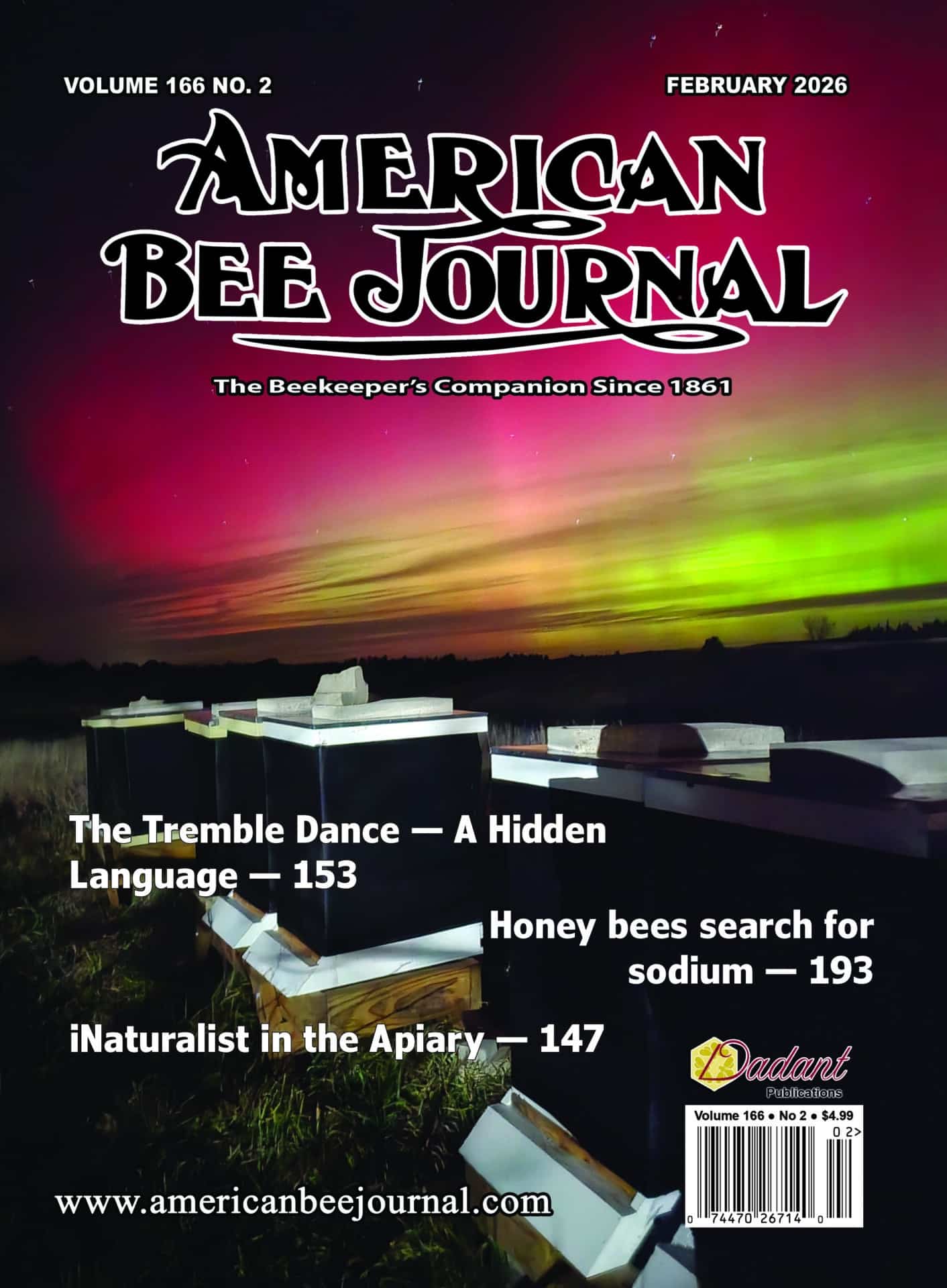
My friend Annie Swarey, an Amish beekeeper, planned to sell nucs and needed an apiary inspection and permits for colonies crossing county lines (an Illinois regulation for over half a century). April 8 was the perfect day for it — a beautiful day nestled in between a stretch
of chilly, rainy days. She invited me to bring my husband and a couple of friends to join us for an inspection and an eclipse viewing.
“Hey! It’s starting! The eclipse is starting!” Our friends stood on the edge of the bee pasture wearing their eclipse glasses, calling to us frantically while Annie and I were up to our ears in alarm pheromone, deep in the process of making splits ahead of the swarm impulse. We were scanning each frame, reading rows of cells from left to right like a book, hoping to find the queen in each hive and remove her on her frame to start a nuc. We were sweaty and had taken a dozen stings each, so we were ready for a break.
The sight of a total eclipse is beyond majestic, so hard to put into words. A fleeting, vibrant, heavenly gem, explosively alive — a sight to take your breath away. One thing that made this 2024 eclipse special was that it coincided with this year’s swarm season. We transitioned from sweeping our eyes across rows of rounded comb cells in search of a queen to gazing at the sky in awe as the sun shifted from curious crescent to celestial diamond.
Working daily in bee yards over the next couple of weeks, my mind dwelled in revery. Brood combs are so full of life and excitement during swarm season, and anointing the season with a total eclipse gave me a beautiful metaphor to carry to work every day. Now I associate eclipse viewing and queen spotting as closely related spiritual acts. Both are sports requiring…


